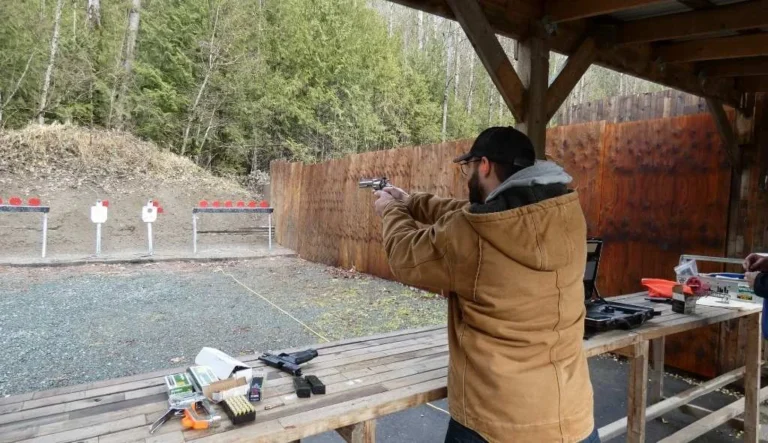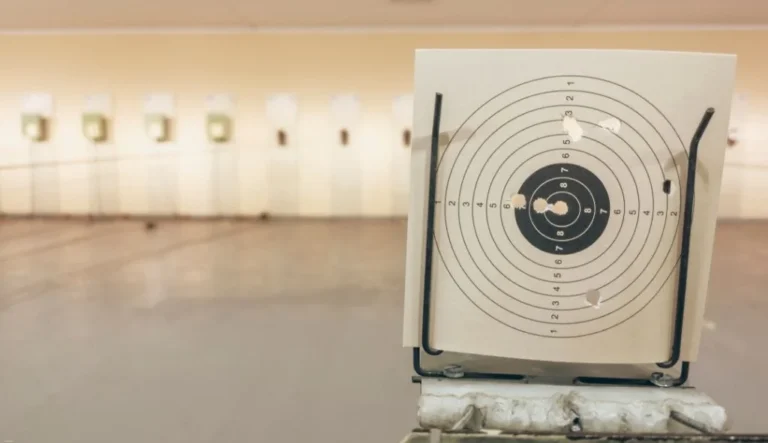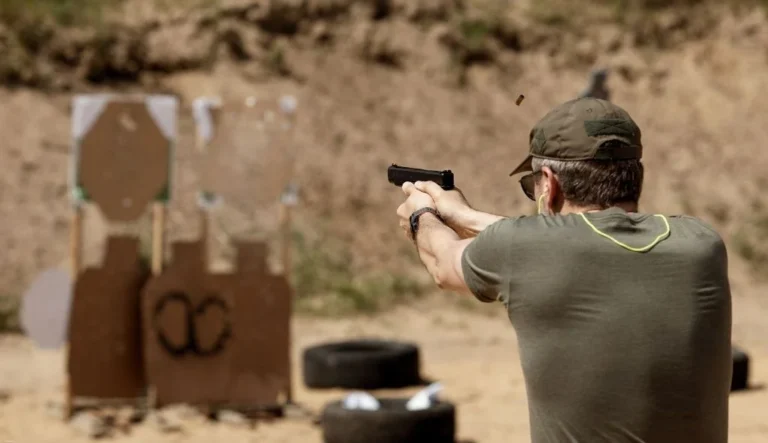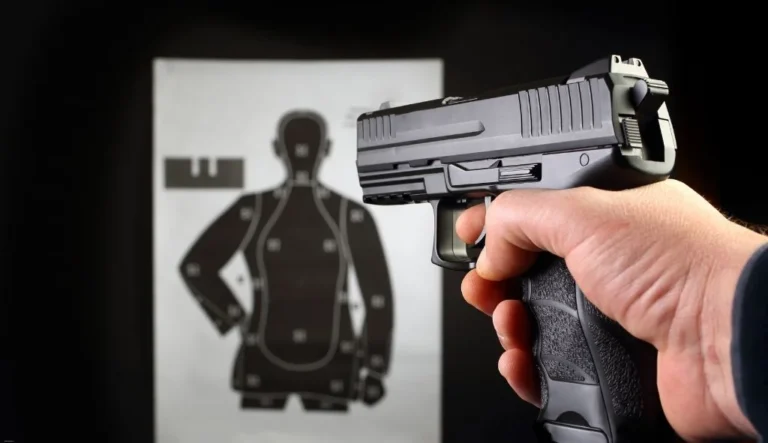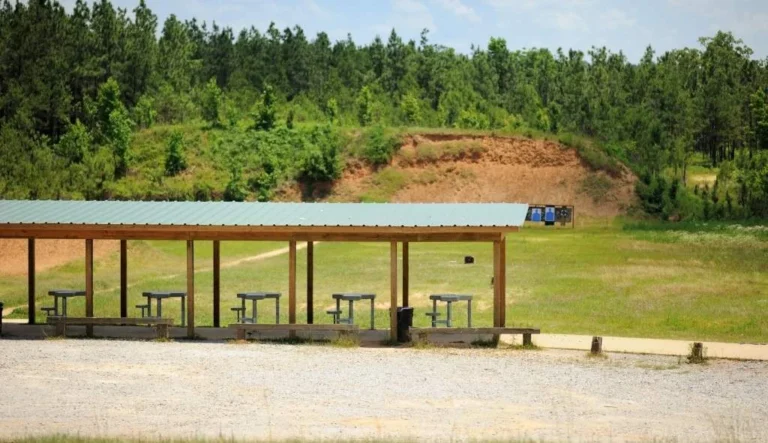A private shooting range is a facility designed for firearm practice and training, owned and operated by individuals or private organizations. It offers controlled environments for shooting activities away from public access.
Understanding Private Shooting Ranges
Private shooting ranges are specialized facilities designed for firearm enthusiasts, hunters, and those seeking to improve their marksmanship skills. These ranges provide a controlled and safe environment for individuals to practice shooting, test firearms, and engage in various shooting sports. Unlike public ranges, private shooting ranges are not open to the general public and often require membership or special permission for access.
Key Features of Private Shooting Ranges
Private shooting ranges come with several distinct features that set them apart from public ranges:
- Exclusive Access: Members or authorized individuals have priority use of the facilities.
- Varied Shooting Disciplines: Many private ranges offer multiple types of shooting areas, including indoor and outdoor options.
- Advanced Equipment: Private ranges often feature state-of-the-art target systems and safety features.
- Personalized Training: Many private ranges provide access to professional instructors for one-on-one or group training sessions.
- Extended Hours: Some private ranges offer more flexible operating hours compared to public facilities.
Types of Private Shooting Ranges
Private shooting ranges come in various forms to cater to different needs and preferences:
- Indoor Ranges: These ranges are enclosed facilities that allow for year-round use regardless of weather conditions. They often have advanced ventilation systems and lighting.
- Outdoor Ranges: These ranges are set up in open-air environments and can accommodate longer shooting distances. They may include various terrains and scenarios for practical shooting practice.
- Tactical Ranges: Designed for law enforcement and military training, these ranges often include simulated urban environments or other specialized setups.
- Skeet and Trap Ranges: Specifically designed for shotgun sports, these ranges feature moving targets that simulate bird flight patterns.
- Long-Distance Ranges: These outdoor ranges allow for practice at extreme distances, often used by long-range shooting enthusiasts and competitive shooters.
Benefits of Private Shooting Ranges
Private shooting ranges offer numerous advantages over their public counterparts:
Enhanced Safety Measures
Safety is paramount in any shooting environment, and private ranges often go above and beyond standard safety protocols. These ranges typically have:
- Strict safety rules and regulations
- Regular safety briefings for members
- On-site range safety officers
- Advanced backstop and bullet containment systems
- First-aid stations and emergency procedures
Improved Learning Environment
Private ranges provide an ideal setting for both novice and experienced shooters to enhance their skills:
- Less crowded conditions allow for more focused practice
- Access to experienced instructors and mentors
- Opportunities to participate in organized training programs and workshops
- Ability to practice advanced techniques without distractions
Community and Networking
Many private shooting ranges foster a sense of community among members:
- Regular events and competitions
- Social gatherings for members
- Opportunities to connect with like-minded individuals
- Access to industry professionals and experts
Customizable Experience
Private ranges often allow members to tailor their shooting experience:
- Ability to set up personal targets and scenarios
- Freedom to practice specific techniques or drills
- Access to a wider variety of shooting disciplines
- Opportunity to use more diverse firearms and ammunition types
Establishing a Private Shooting Range
Creating a private shooting range involves several important considerations:
Legal Requirements
Before establishing a private shooting range, it’s crucial to understand and comply with all relevant laws and regulations:
- Zoning laws and land use restrictions
- Environmental regulations, including lead management
- Noise ordinances
- Safety standards and building codes
- Firearms storage and transportation laws
Design and Construction
Proper design and construction are essential for creating a safe and functional private shooting range:
- Engage professional range designers and builders
- Implement proper backstops and bullet containment systems
- Install adequate lighting and ventilation systems
- Create separate areas for different shooting disciplines
- Incorporate storage facilities for equipment and targets
Safety Protocols
Developing comprehensive safety protocols is crucial for the operation of a private shooting range:
- Create detailed range rules and regulations
- Implement a system for member education and certification
- Establish procedures for firearm and ammunition checks
- Develop emergency response plans
- Regular maintenance and inspection schedules
Membership Structure
Deciding on a membership structure is an important aspect of running a private shooting range:
- Determine membership fees and dues
- Establish membership levels and benefits
- Create a vetting process for new members
- Implement a reservation system for range time
- Develop policies for guests and visitor access
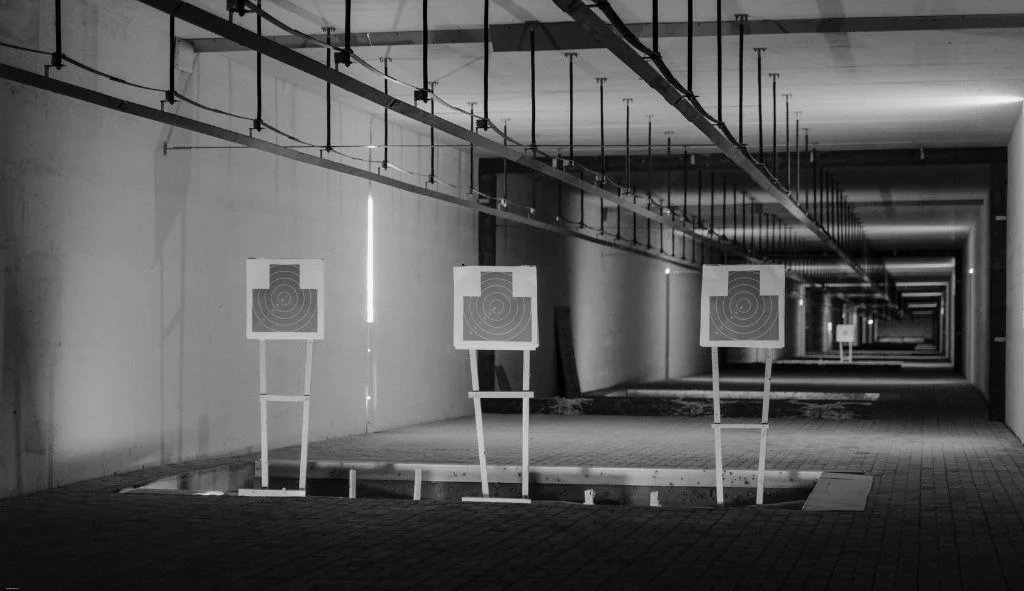
Maintaining a Private Shooting Range
Proper maintenance is essential for the longevity and safety of a private shooting range:
Regular Inspections
Conducting regular inspections helps identify and address potential issues:
- Check backstops and bullet traps for wear and damage
- Inspect target systems and carriers
- Evaluate lighting and ventilation systems
- Assess the condition of floors, walls, and ceilings
- Review safety equipment and first-aid supplies
Environmental Management
Proper environmental management is crucial for the sustainability of a private shooting range:
- Implement lead management and recycling programs
- Monitor and control noise levels
- Manage water runoff and soil contamination
- Conduct regular environmental impact assessments
- Stay updated on environmental regulations and best practices
Equipment Upgrades
Keeping equipment up-to-date ensures the range remains safe and appealing to members:
- Regularly update target systems
- Upgrade safety equipment as new technologies become available
- Maintain and replace firearms and other range equipment
- Implement new training technologies and simulators
- Update range management software and systems
Challenges of Private Shooting Ranges
While private shooting ranges offer many benefits, they also face several challenges:
Financial Considerations
Operating a private shooting range can be costly:
- Initial investment in land and construction
- Ongoing maintenance and upgrades
- Insurance and liability costs
- Staffing expenses
- Marketing and member retention efforts
Regulatory Compliance
Staying compliant with changing regulations can be challenging:
- Keeping up with evolving firearms laws
- Adapting to new environmental regulations
- Meeting updated safety standards
- Navigating zoning and land use changes
- Managing noise complaints and community relations
Member Management
Effectively managing a diverse membership base can present challenges:
- Balancing different skill levels and interests
- Resolving conflicts between members
- Maintaining consistent rule enforcement
- Providing value to retain members
- Attracting new members while preserving exclusivity

